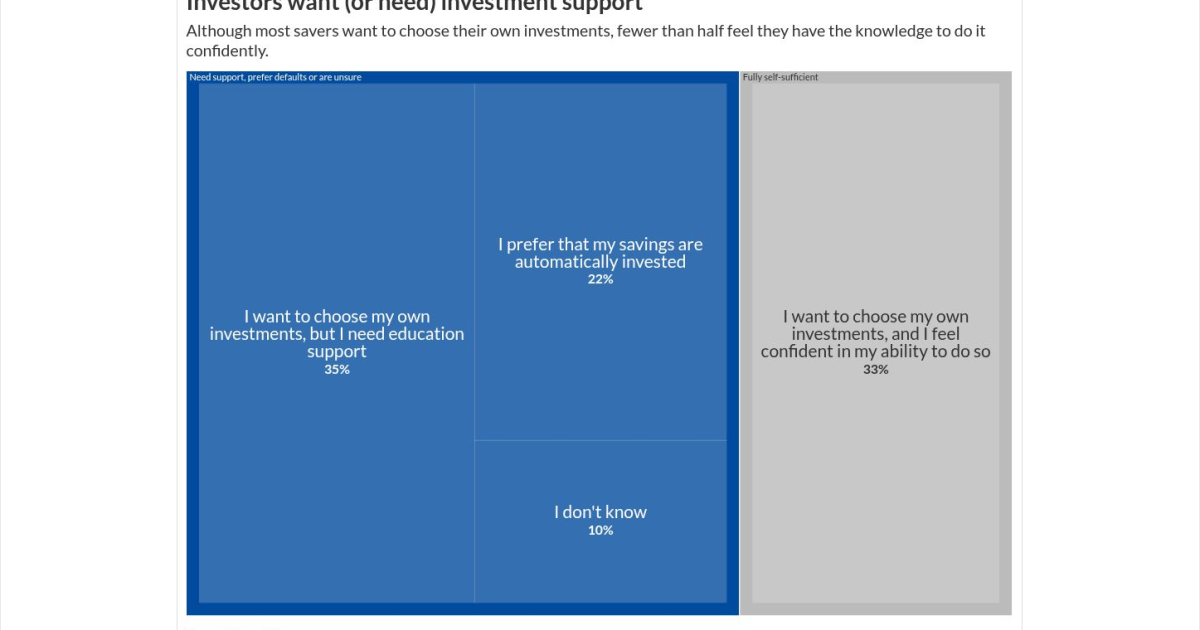Despite all the hype, most financial advisors don’t believe artificial intelligence will take their jobs.
That attitude was most recently exemplified in Financial Planning’s AI Readiness Survey, in which 70% of the 250 respondents either mostly or completely disagreed with the idea that “AI will one day completely replace all financial advisors.”
But, try telling that to someone like Fahad Hassan. Because that’s exactly what he’s after.
Meet the man who wants to put you out of the job
Hassan is the CEO of the flat-fee wealth management startup Range, which he co-founded in 2021.
“We looked at this technology and said, ‘It’s early, but holy cow, there’s an opportunity here to replace human advisors with AI.’ It’s not going to happen overnight, but it’s going to happen,” he told Financial Planning. “We can leverage AI to give consumers advice at the quality bar of human advisors that are tenured or better.”
Since launching publicly in 2023, Hassan said the firm now serves nearly 4,000 clients and employs around 20 financial advisors in house.
“They use our technology before it goes to our customers,” he said. “They test it, build it and make sure it’s bulletproof. They make sure it’s what they would use to help customers. Once they give us the all clear after a period of testing, usage and feedback, then the customer sees it.”
READ MORE: When AI wastes more time than it saves for advisors
Hassan compared the current iteration of the company to Uber, “with a driver in the seat,” but said the ultimate goal in the next few years is to be like the driverless Waymo.
“Fully autonomous,” he said, “That’s the vision for the company.”
In essence, Hassan is working to eventually put the entire profession in the scrap heap.
“Advisors are defensive about this technology because it’s so revolutionary,” he said. “I understand that. It’s scary when you’re going to lose your job to something and you don’t know what you might do next. I completely empathize with that.”
However, Hassan said he does think there may be a place for advisors in the next few decades, assisting aging baby boomers.
“If you’re 65 years old, you might not be comfortable using AI or understand it like a 40- or 30-year-old,” he said. “In those instances, the gap that a human advisor will fill is simply translation. ‘Here’s what AI is telling you to do. You might not understand it. Let me walk you through it, and I get paid to do that.'”
READ MORE: This is the biggest cybersecurity threat for wealth firms
But, what will advisors do once they don’t have jobs any more? Hassan suggested they could become engineers or technical product managers, like the advisors he currently employs. Whatever happens, he said, they’ll figure it out.
“Humans are insanely resilient,” he said. “We find new jobs. We do new things. We learn new skills. If AI takes every job in the marketplace, not just wealth advisory jobs, we’ll find new things to do, because we don’t have to worry about the old paradigm.”
AI is already automating technical work, but not human interaction
Someone who disagrees has already had one of the new jobs Hassan suggested.
Mark Stancato, founder and lead advisor at VIP Wealth Advisors in Decatur, Georgia, spent two years at Range as a lead advisor, helping to build out their financial planning team and process.
Stancato said he left in May “due to concerns about the firm’s direction and the disconnect between how they marketed AI and what was actually happening behind the scenes.” He called Hassan’s claims “attention-seeking hyperbole.”
Hassan fundamentally misunderstands what great advisors do, said Stancato.
“AI can process data, but it can’t process human context — the emotional complexity, judgment and behavioral coaching that drive real outcomes,” he said. “Clients don’t just hire us for numbers — they hire us for clarity, confidence and accountability. That’s not something an algorithm can replicate.”
Advisors who embrace AI as a tool will become more valuable, not less, said Stancato.
“We’ll offload the rote analysis and refocus on high-impact strategy, psychology and decision-making,” he said. “AI won’t replace advisors. It’ll expose who’s replaceable.
For many advisors, whether advisors will be replaced by AI requires a nuanced answer.
Steven Crane, founder of Financial Legacy Builders in Dayton, Ohio, said he does agree “to an extent” that AI will replace advisors. Specifically, he said the technical work — like writing reports, generating portfolios and optimizing taxes — will be completely automated.
“However, what is incredibly undervalued in the industry — which I think people are finally waking up and realizing — is the relationship and coaching aspect of financial planning,” he said. “The psychological part of financial planning will never be fully automated because at the end of the day, humans cannot be replaced by AI, but the work we do can absolutely be replaced.”
Crane said he thinks almost all advisors highly underestimate what AI is going to be able to do in the next five years and are still holding on to an “incredibly antiquated” system of doing business.
“Advisors who pivot to more therapy, counseling and coaching will survive because that is almost impossible to replace,” he said. “However, those that still think they can build a portfolio or plan better than AI are going to be sadly disappointed in the next couple of years.”
Similarly, Brian Walsh, founder and managing partner at Vested Advisors in Lansdale, Pennsylvania, said AI has already replaced most trading that financial advisors had to do. AI’s emergence in other areas, particularly administratively, is “a welcome enhancement,” he said.
“Financial planning goes way beyond just trading and investment management,” he said. “As a CFP, we are the quarterbacks of a client’s financial life cycle.”
There will always be people that are willing to pay for humans to give advice, but Jay Zigmont, CEO and founder of Childfree Wealth in Mount Juliet, Tennessee, said he thinks Hassan is right otherwise. As the number of baby boomers die off, so will the number of classic “delegators” that paid 1% of AUM for investment management, he said.
“AI can already do the financial components better than most advisors, so why not use AI?” he said.
The difference will be on the behavioral side, said Zigmont.
“AI currently is behind on helping clients to change their mental models and money scripts, but then again, many advisors don’t focus on the behavioral side either,” he said. “I tend to think of AI as democratizing financial planning and making it accessible to more people.”
Most advisors aren’t buying the hype
As FP’s AI Readiness Survey results suggest, most financial advisors simply don’t believe Hassan’s assertions.
Specifically, Trevor Scotto, co-founder, partner and wealth manager at Fiduciary Financial Group in San Rafael, California, said he takes issue with the idea that only older clients who do not understand technology will want or need the expertise of an advisor.
“Regardless of generation, many people prioritize accountability and trust in their financial decisions,” he said. “While AI can empower more DIY investors by offering sophisticated tools for more self-directed planning, it won’t satisfy those who seek personalized guidance and a collaborative partnership.”
While Lucas Wennersten, owner and founder of 49th Parallel Wealth Management in Scottsdale, Arizona, said that while he does think AI will take a larger part of the market share in the future, there will always be people who want to work with a human instead of a machine.
“I think that there will be a revolt against AI in the future,” he said. “Many people will refuse to use AI products because they know that AI cannot replace a human and we are doomed for certain ruin if we allow AI to eliminate all human jobs.”
If AI does replace all the human advisors, Wennersten said he would also assume it would do the same to portfolio managers.
“In that case, AI would be playing the stock market by itself,” he said. “At that point, is money and investing even real anymore? Or are we just surrendering our fate to the bots?”
After nearly three decades in the business, Meredith H. Schneider, founder of Schneider Wealth Management in Palo Alto, California, said she has consistently heard over the years that some new technology or approach is going to replace advisors.
“The predictions never come true,” she said. “It is important to always be aware of a changing business landscape and not be sanguine about anything just because it was true in the past, but I also question why this time is any different in terms of humans helping humans.”
While he does concede that AI will eventually be able to do a better job than humans regarding research and portfolio analysis, Ramiro Marmolejo, founder of Financial Rubrics in San Antonio, Texas, said “it will never be able to replace the essence of humanity.”
“AI is simply an algorithm,” he said. “It’s logical, systematic and non-emotional. Its lack of emotion and empathy is its greatest weakness.”
One of the main problems Marmolejo has seen with large language models is how they are trained to agree with their users in every position that they hold.
“Maybe this will be improved in the future, but I still don’t think AI will ever be able to connect on an emotional level to humans,” he said.

























